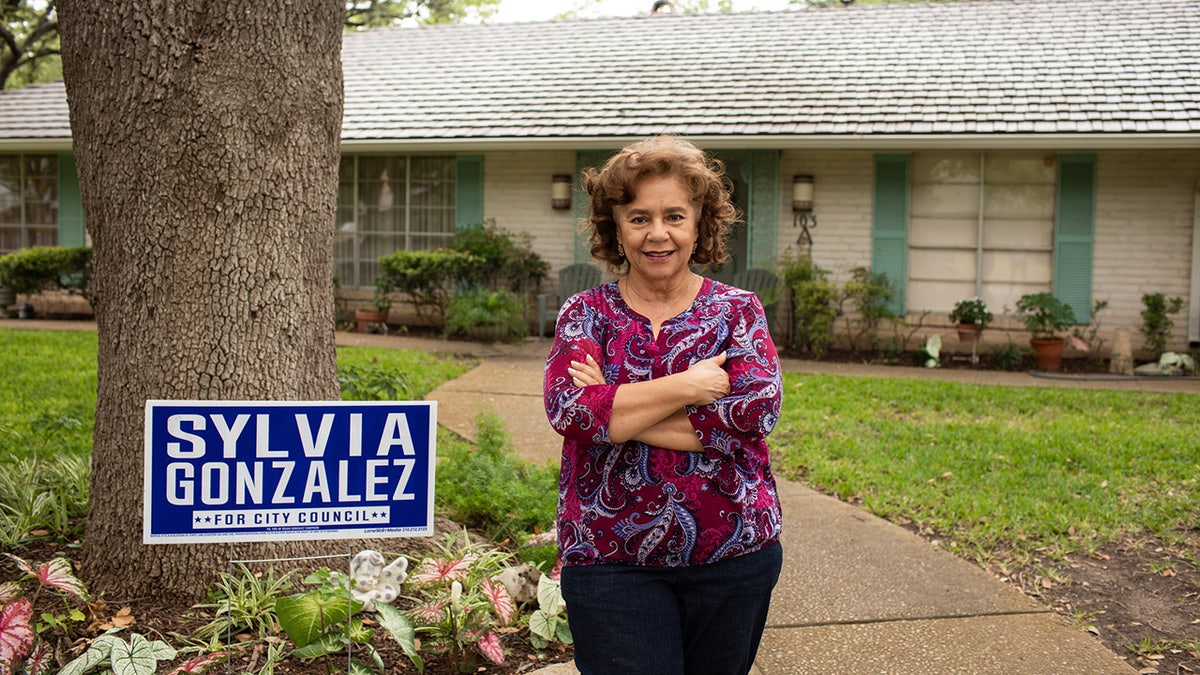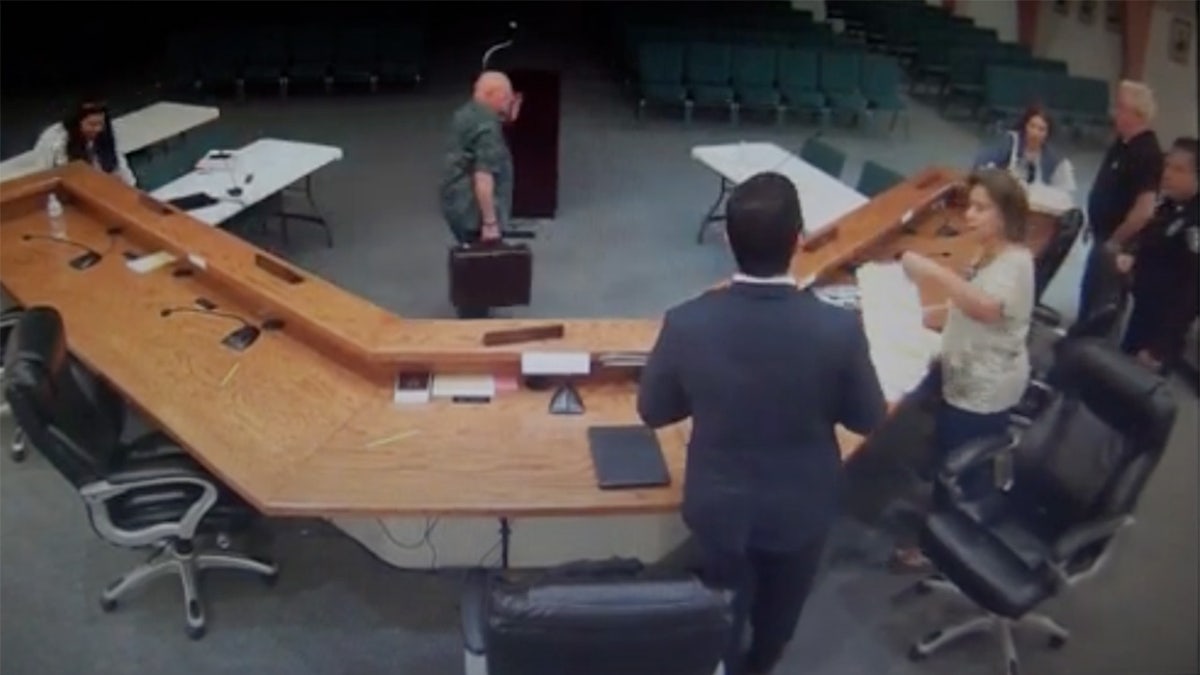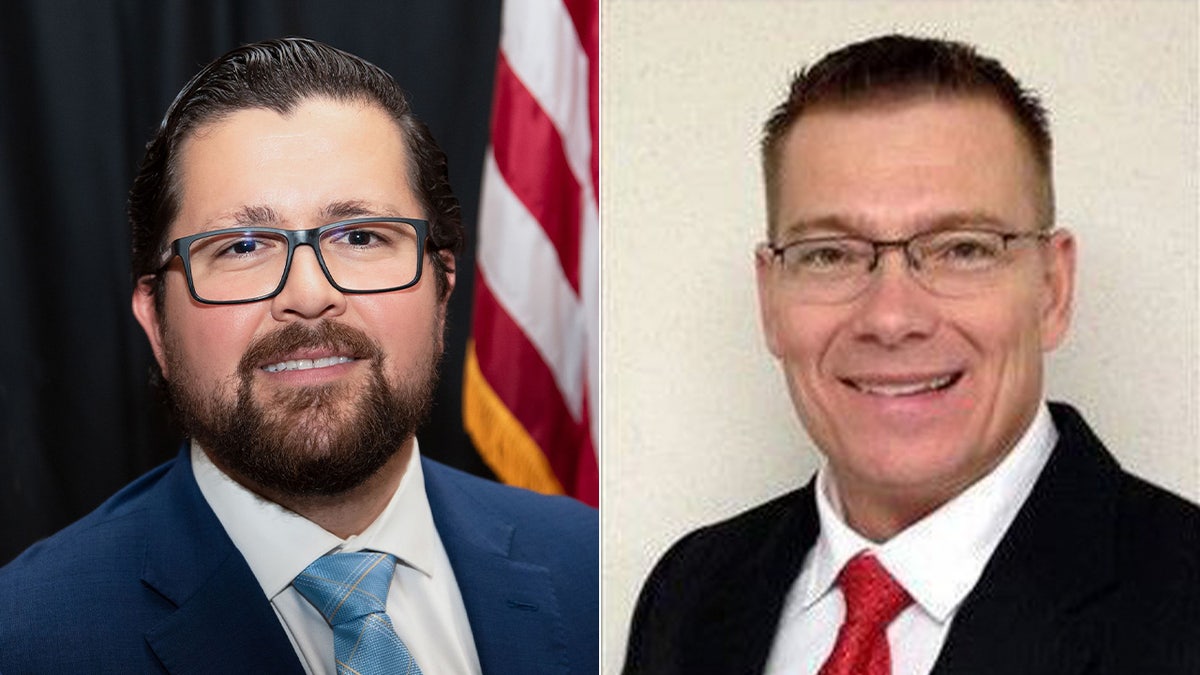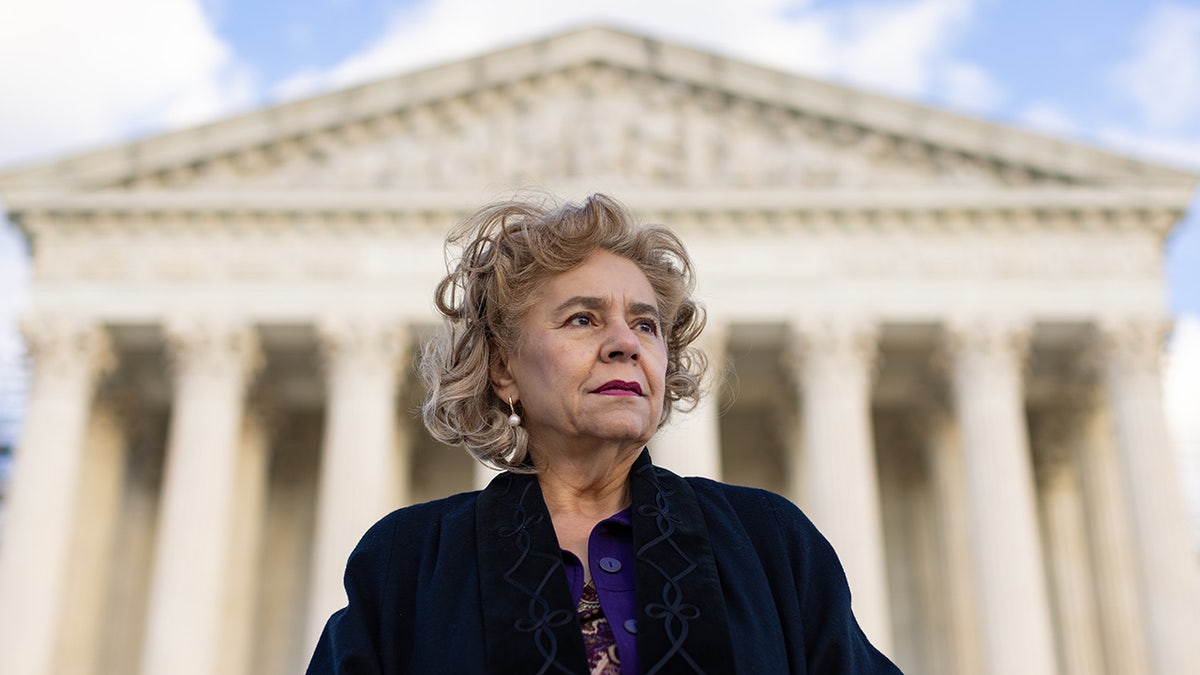SCOTUS to hear case of Texas grandmother jailed after criticizing city manager
Sylvia Gonzalez's attempt to get a city manager removed landed her in jail. Now, the Supreme Court will decide if she can sue for politically motivated retaliation.
A small-town political feud that wound up with a Texas city council member behind bars is headed to the Supreme Court this week, where justices will consider whether the councilwoman can sue city leaders for politically motivated retaliation.
"I would never believe that I would be going to the Supreme Court," Sylvia Gonzalez told Fox News. "I would never believe that I was in jail either."

Castle Hills police arrested Sylvia Gonzalez in July 2019 on a charge of tampering with a public document. Now, the Supreme Court is to decide whether the grandmother and former city councilwoman can sue city officials for politically motivated retaliation. (Courtesy Institute for Justice)
Gonzalez and her attorneys at the nonprofit Institute for Justice (IJ) are suing Castle Hills Mayor JR Trevino and other officials, alleging they plotted to remove her from office as retaliation for criticizing the city manager, thereby violating her First Amendment rights.
"In America, we don't arrest our critics," IJ attorney Anya Bidwell said.
Gonzalez's story began in 2019 when the then-72-year-old retiree won a seat on the Castle Hills City Council. She said constituents had complained extensively that the city manager, Ryan Rapelye, was unresponsive, particularly to their concerns over the condition of their streets.
"In America, we don't arrest our critics."
As soon as she was elected, Gonzalez championed a nonbinding petition calling for the city manager to be replaced with a previous manager who residents felt had done a better job. Another resident introduced the petition at Gonzalez's first city council meeting. Discussion of the manager's job performance "grew contentious," according to court records, and the meeting was extended through the following day.
At the end of the meeting, Gonzalez said she straightened up the papers strewn across her dais and put them in her binder before going to talk to a constituent.
A police officer interrupted the conversation, telling Gonzalez that Trevino wanted to speak with her, according to court documents. Gonzalez went back to the dais and Trevino asked where the petition was. Gonzalez said she didn't know. Trevino allegedly asked her to look in her binder, saying he could see a clip inside.

Security video from May 22, 2019, shows then-Councilwoman Sylvia Gonzalez pulling the petition out of her binder at the request of Mayor JR Trevino and a police officer. The nonbinding petition called for the reinstatement of a former city manager, who Gonzalez and supporters said was more reliable and dedicated to completing street repairs than her successors. (Screenshot via City of Castle Hills Texas/YouTube)
MOMS SUE STATE OVER 'CREEPY' BABY BLOOD DATABASE, PRIVACY CONCERNS
Indeed, the petition was in the binder, so Gonzalez handed it over and thought nothing of it. But two months later, she learned from a neighbor that there was a warrant out for her arrest.
"I didn't even know what I was accused of," Gonzalez told Fox News. "I'd never been in jail … and it was very scary to an old lady like me."
Trevino and Police Chief John Siemens used the briefly displaced petition to launch a criminal investigation into Gonzalez, her lawsuit alleges. Three weeks into the investigation, the police chief assigned a "trusted friend and local attorney" to take over as a "special detective," according to Gonzalez's complaint.
The special detective produced an arrest affidavit alleging that Gonzalez had "been openly antagonistic" toward the city manager from her first meeting, "wanting desperately to get him fired." The affidavit also accused Gonzalez of misleading a woman by "telling her several fabrications" about Rapelye in order to get her signature, according to court documents.
‘THEY WANTED TO PUNISH ME’: FORMER CITY COUNCILWOMAN'S RETALIATION CASE GOES TO SUPREME COURT:
WATCH MORE FOX NEWS DIGITAL ORIGINALS HERE
Detectives found probable cause to believe Gonzalez stole her own petition when she put it in her binder with other papers, violating a Texas ban on intentionally removing or destroying government records, according to court documents from the defendants.
The statute is usually used in cases involving fake Social Security numbers, forgeries of official checks and counterfeit green cards, Bidwell said. IJ looked at 10 years of Bexar County data and couldn't find "anything even remotely similar" to Gonzalez's case, she added.
Rather than seek a summons for the nonviolent misdemeanor, the special detective took the unusual step of asking for an arrest warrant, the lawsuit contends. The special detective also went straight to a district court judge, circumventing the Bexar County District Attorney's Office.
"They wanted to punish me, and they wanted to make sure I went to jail. And they did a good job," Gonzalez said.
Gonzalez turned herself in, was handcuffed, spent the day sitting in jail and had her mugshot splashed across the evening news. Even though the DA's office dropped the charge, her brief political career was over.

Gonzalez's lawsuit accuses Mayor JR Trevino, left, and former Castle Hills Police Chief John Siemens of launching a bogus investigation after she says she accidentally placed a petition she spearheaded into her binder. She was arrested for tampering with a public document, but the DA's office later dismissed the charge. (Courtesy City of Castle Hills)
Gonzalez sued Trevino, Siemens, special detective Alexander Wright and the city in 2020, alleging they deprived her of her rights under the First and 14th Amendments of the U.S. Constitution.
Attorneys for Trevino and the other defendants did not return a request for comment.
The city officials invoked qualified immunity, a defense commonly used to shield government officials from liability unless it can be proven that they violated a clearly established constitutional right.
"They wanted to punish me, and they wanted to make sure I went to jail. And they did a good job."
A district court judge initially denied the defendants' immunity, but the 5th U.S. Circuit Court of Appeals reversed that ruling. In a 2-1 decision, the court determined Gonzalez failed to prove her arrest was retaliatory because she could not cite cases in which other individuals had not been arrested for actions similar to hers.
The 5th Circuit cited Nieves v. Bartlett, which involved police officers making "split-second decisions," Bidwell said. IJ hopes the Supreme Court will decide that this special protection from First Amendment lawsuits should not be extended to other government officials.
"When it comes to mayors, when it comes to other desk-bound bureaucrats who want to throw their critics in jail, First Amendment comes first, and they should be held accountable for violations of people's constitutional rights," Bidwell said.

Gonzalez's lawsuit alleges Trevino and his political allies tried to have her removed from the city council in a variety of ways, including declaring that she had been improperly sworn in by the county sheriff. The 72-year-old retiree eventually resigned from the council. The city manager whose performance she criticized kept his job. (Courtesy Institute for Justice)
CLICK HERE TO GET THE FOX NEWS APP
Gonzalez will have her case heard Wednesday.
Bidwell said Gonzalez's case could have wide-reaching implications, including the 2023 police raid of a local newspaper office in Marion County, Kansas. The police chief was allegedly "infuriated" the newspaper was investigating his background, according to a federal lawsuit recently filed in the case.
To hear more from Gonzalez and Bidwell, click here.
Ramiro Vargas contributed to the accompanying video.



